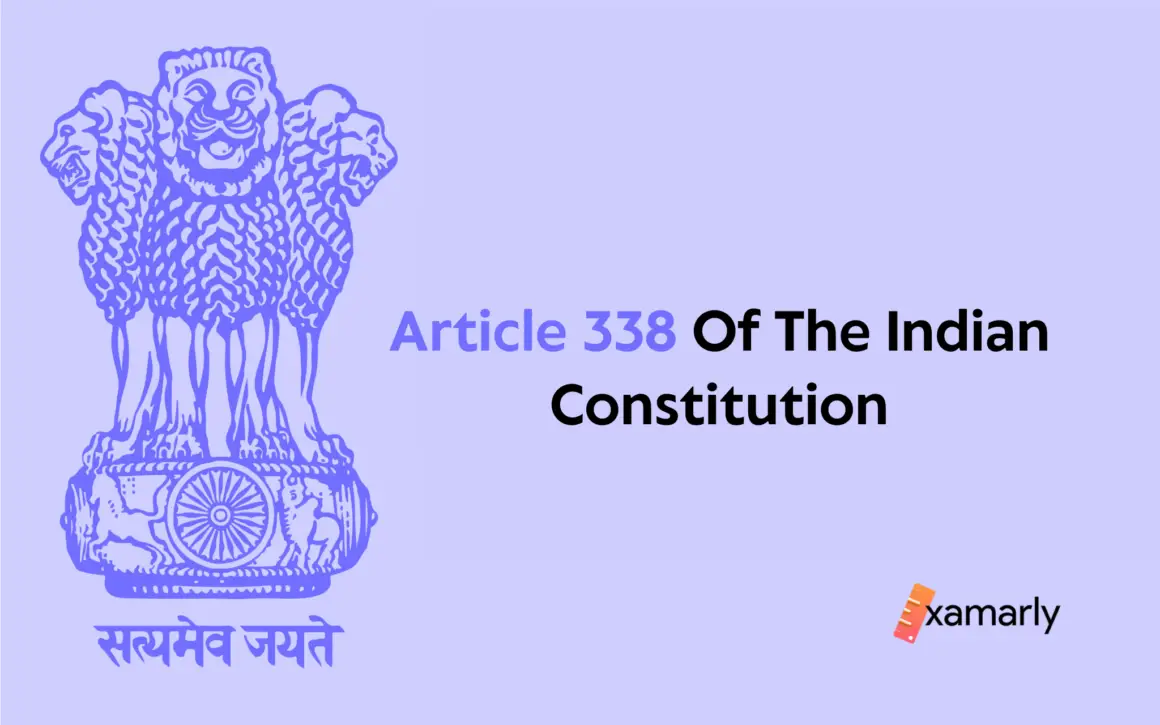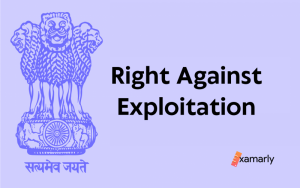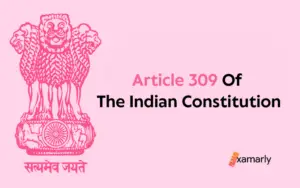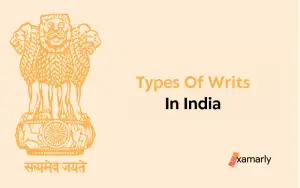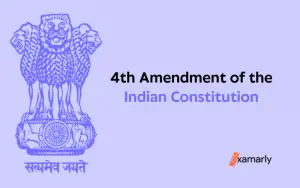Article 338 of the Indian Constitution mentions about the powers & provisions for a national commission for the Scheduled Caste community of India.
It’s sub-articles consist of Article 338A for a national commission for the Scheduled Tribes and Article 338B for a national commission for Backward Classes.
Let us dive deep to have a clear understanding of Article 338 of the Indian Constitution, it’s clauses & it’s sub-articles 338A and 338B.
- Article 338 Of The Indian Constitution – Elaborated
- Article 338A Of The Indian Constitution – Explained
- Article 338B Of The Indian Constitution – Elucidated
- Summary
- FAQs Around Article 338 Of The Indian Constitution
- What is Article 338 of the Indian Constitution?
- What is Article 338A of the Indian Constitution?
- What is Article 338B of the Indian Constitution?
- How are the National Commission for Scheduled Castes and Scheduled Tribes different from other commissions?
- What is the term of office of the members of National Commission for Scheduled Castes and Scheduled Tribes?
Article 338 Of The Indian Constitution – Elaborated
Article 338 of the Indian Constitution lays down the rules for the establishment of a National Commission for the Scheduled Castes.
1. A National Commission will be created for the Scheduled Castes of India.
2. The National Commission for Scheduled Castes of India, shall be established with a Chairperson, Vice-Chairperson and three other Members. The conditions of service and tenure of office of these members will be determined by the President, as per laws set by Parliament.
3. The President shall appoint the members of the National Commission for Schedule Castes by warrant under his signature and seal.
4. The National Commission for Scheduled Castes will have the authority to control how it operates.
5. It will be the Commission’s responsibility.—
(a) To look into, keep a check on, and assess the effectiveness of any issues relevant to the safeguards given for the Scheduled Castes under this Constitution, any other law currently in effect, or under any government order;
(b) To look into particular complaints with respect to the loss of Scheduled Castes’ rights and protections;
(c) To assess the progress made in the Scheduled Castes’ development under the Union and any State, participate in and provide advice on the planning process for their socio-economic development;
(d) To provide reports on the operation of those safeguards to the President on a yearly basis and at other times the Commission may deem appropriate;
(e) To include suggestions for action in such reports about safeguards and other measures for the protection, welfare, and socio-economic advancement of the Scheduled Castes that should be implemented effectively by the Union or any State; and
(f) To take on any extended responsibility for the protection, welfare and socio-economic development of the Scheduled Castes of India that the President may, in accordance with laws set by Parliament, specify.
6. All such reports must be tabled before each House of Parliament, along with a document outlining the actions done or planned in response to any suggestions pertaining to the Union and the reasons, if any, for any proposals that were not accepted, by the President’s order.
7. Where any such report, or any part thereof, relates to any matter with which any State Government is concerned, a copy of such report shall be forwarded to the Governor of the State, who shall lay it before the State Legislature along with a memorandum explaining the action taken or proposed to be taken on the recommendations relating to the State and the reasons for the non-acceptance, if any, of any such recommendations.
8. When investigating any matter referred to in Sub-Clause(a) or examining any complaint referred to in Sub-Clause(b) of Clause(5), the National Commission for Scheduled Castes shall have the same powers as a civil court trying a case, specifically in relation to the following matters: :—
(a) Summoning and enforcing the attendance of any person from any part of India and examining him on oath;
(b) Requiring the discovery and production of any document;
(c) Receiving evidence on affidavits;
(d) Requisitioning any public record or copy thereof from any court or office;
(e) Issuing commissions for the examination of witnesses and documents;
(f) Any other matter which the President may, by rule, determine.
9. On all significant policy issues impacting Scheduled Castes, the Union and each State Government shall contact the National Commission for Scheduled Castes.
10. In this article, references to the Scheduled Castes shall be considered as references to the Anglo-Indian community as well.
Article 338 of the Indian Constitution has two sub-articles, namely:-
- Article 338A of the Indian Constitution.
- Article 338B of the Indian Constitution.
Article 338A Of The Indian Constitution – Explained
While Article 338 of the Indian Constitution mentions about the special provisions for a National Commission for the Scheduled Castes, Article 338A lays down the regulations for a National Commission for Scheduled Tribes.
It was inserted in the Indian Constitution through the Constitution (89th Amendment) Act, 2003.
1. The name of this commission shall be the National Commission for Scheduled Tribes..
2. Subject to any law adopted in this matter by Parliament, the Commission shall consist of a Chairperson, Vice-Chairperson, and three additional Members, and the President may by rule set their conditions of service and tenure of office.
3. The President shall appoint the Members of the Commission by a warrant signed by him and sealed.
4. The Commission should have the authority to determine its own operating procedures.
5. The Commission shall be responsible.—
(a) For examining and monitoring any matters relevant to the safeguards provided for the Scheduled Tribes under this Constitution, any other law in force, or any government order and evaluating their effectiveness;
(b) For looking into specific complaints about deprivation of rights & protections of the Scheduled Tribes;
(c) For engaging and advising on socio-economic development planning for Scheduled Tribes and assessing their development under the Union and any State;
(d) For reporting on those protections to the President annually and at other times as the Commission sees fit;
(e) For providing suggestions in such reports on how the Union or any State should implement those safeguards and other measures for the protection, welfare, and socio-economic development of Scheduled Tribes; and
(f) To take any & all extended responsibilities for an effective implementation regarding development, welfare, advancement, and protection of the Scheduled Tribes as the President specifies in accordance with laws set by Parliament.
6. The President shall lay all such findings before each House of Parliament along with a memorandum detailing the Union’s recommendations and the reasons for their non-acceptance.
7. A copy of the report must be sent to the governor of the state whenever it or any portion of it relates to a matter that the state government is interested in. The governor will then arrange for the report to be presented to the state legislature along with a memo outlining the actions taken or planned in response to the recommendations that pertain to the state and the reasons, if any, for any recommendations that were not accepted.
8. The Commission shall have all the powers of a civil court trying a case, in particular with regard to the following functions in relation, while examining any subject referred to in Sub-Clause(a) or looking into any complaint referred to in Sub-Clause(b) of Clause(5), namely:—
(a) Summoning and enforcing the attendance of any person from any part of India and examining him on oath;
(b) Requiring the discovery and production of any document;
(c) Receiving evidence on affidavits;
(d) Requisitioning any public record or copy thereof from any court or office;
(e) Issuing commissions for the examination of witnesses and documents;
(f) Any other matter which the President may, by rule, determine.
9. For all major policies influencing Scheduled Tribes, the Union and State Governments must turn to the Commission.
Article 338B Of The Indian Constitution – Elucidated
While Articles 338 & 338A talk about a commission for the Schedule Castes & the Schedule Tribe respectively, Article 338B of the Indian Constitution lays down the regulations of a commission for the Backward Classes of India.
The 123rd Constitutional Amendment Bill, 2017 and the 102nd Amendment Act, 2018 in the constitution made this commission a constitutional body.
1. There shall be a Commission for the socially and educationally backward classes to be known as the National Commission for Backward Classes.
2. Subject to any law adopted in this matter by Parliament, the Commission shall consist of a Chairperson, Vice-Chairperson, and three additional Members, and the President may by rule set their conditions of service and tenure of office.
3. The President will appoint Commission members by a warrant under his seal.
4. The Commission has the authority to establish its own operating rules.
5. It shall be the duty of the Commission—
(a) To investigate and supervise all topics relevant to the safeguards provided for the socially and educationally backward classes under this Constitution or any other legislation or order of the Government and to evaluate their effectiveness;
(b) To inquire into allegations of discrimination against economically and educationally disadvantaged people;
(c) To participate and advise on the socio-economic development of socially and educationally backward classes and evaluate their development under the Union and any State;
(d) To provide the President with updates on the effectiveness of these protections on an annual basis and at other times as the Commission sees fit;
(e) To suggest in such reports that the Union or any State apply those safeguards and other measures for the protection, welfare, and socio-economic development of socially and educationally backward strata; and
(f) To take on any extended responsibility related to the protection, welfare, development, and progress of socially and educationally backward classes as the President may, in accordance with laws set by the Parliament, specify.
6. The President shall lay all such findings before each House of Parliament along with a memorandum detailing the Union’s recommendations and the reasons for their non-acceptance.
7. A copy of any such report—or any portion thereof—must be sent to the State Government, which must arrange for it to be presented to the State Legislature along with a memo outlining the actions taken or planned in response to any recommendations that pertain to the State and the reasons for any recommendations that were not accepted, if any, along with a copy of the report.
8. While investigating any matter referred to in Sub-Clause(a) or inquiring into any complaint referred to in Sub-Clause(b) of Clause(5), the Commission shall have all the powers of a civil court trying a suit, including the following matters, namely :—
(a) Summoning and enforcing the attendance of any person from any part of India and examining him on oath;
(b) Requiring the discovery and production of any document;
(c) Receiving evidence on affidavits;
(d) Requisitioning any public record or copy thereof from any court or office;
(e) Issuing commissions for the examination of witnesses and documents;
(f) Any other matter which the President may by rule, determine.
9. The Union and every State Government shall consult the Commission on all key policy decisions affecting the socially and educationally backward sections.
With the provision that nothing in this clause shall apply for the purposes of Clause(3) of the Sub-Article “A” of Article 342 of the Indian Constitution.
Summary
Article 338 of the Indian Constitution establishes the National Commission for Scheduled Castes of India.
Article 338A & 338B are sub-articles under Article 338 of the Indian Constitution that mentions similar provisions & regulations for the Scheduled Tribes and Backward Classes of India, respectively.
FAQs Around Article 338 Of The Indian Constitution
What is Article 338 of the Indian Constitution?
Article 338 of the Indian Constitution deals with the National Commission for Scheduled Castes (NCSC) in India.
It lays down the composition, appointment, and functioning of these commissions, which are responsible for the protection of the rights and welfare of Scheduled Castes.
What is Article 338A of the Indian Constitution?
Article 338A of the Indian Constitution is in regards to the National Commission for Scheduled Tribes (NCST).
It lays down the composition, appointment, and functioning of these commissions, which are responsible for the protection of the rights and welfare of Scheduled Tribes.
What is Article 338B of the Indian Constitution?
Article 338B of the Indian Constitution deals with the National Commission for Backward Classes (NCBC).
It lays down the composition, appointment, and functioning of these commissions, which are responsible for the protection of the rights and welfare of Backward Classes.
How are the National Commission for Scheduled Castes and Scheduled Tribes different from other commissions?
The NCSC and NCST are special commission established under Article 338 of the Indian Constitution to protect the rights and welfare of Scheduled Castes and Scheduled Tribes, respectively.
They have more extensive powers than other commissions, including the power to investigate complaints of discrimination and atrocities against Scheduled Castes and Scheduled Tribes and to advise the government on measures to improve their welfare.
What is the term of office of the members of National Commission for Scheduled Castes and Scheduled Tribes?
The term of office of the members of NCSC and NCST is three years from the date on which they enter upon their office.


